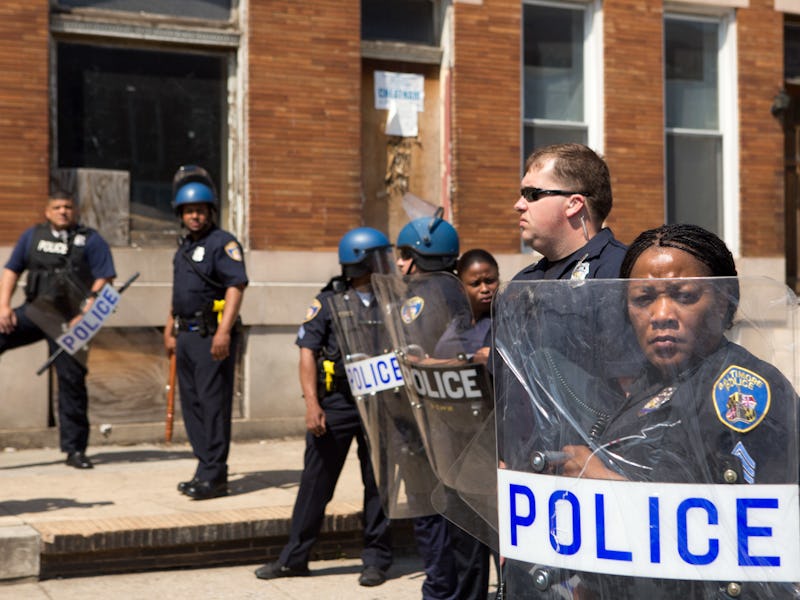In 'Serial' Season 3, Sarah Koenig Needs to Investigate Police Brutality
The podcast is about our justice system(s). It's time to talk about the ground forces.

Sarah Koenig’s Serial podcast is back. This season, she’s telling the story of Bowe Bergdahl, the U.S. soldier who snuck away from his platoon in Afghanistan in 2009. It’s a story that’s already gotten major coverage and the greenlight from Hollywood. It’s also a far cry from Koenig’s investigation into Adnan Syed’s potentially wrongful murder conviction, an otherwise unknown case. The choice of topic indicates the show’s aspirations, but also a certain trepidation about politics. Bergdahl’s story, like Syed’s, is more personal than cultural, so a critique of existing systems is unlikely to emerge naturally from narrative.
There is nothing wrong with covering the Bergdahl case, which is fascinating; presumably Koenig made the decision because she has an angle or material. Still, Koenig has gone and constructed herself a hell of a soapbox from which to talk about our criminal justice system at a time when there are many people eager to have that conversation. And, let’s be specific, the discussion is largely about law enforcement. If Koenig is serious about exerting influence, it’s time for her to look at the police. Season 3 can be the season in which Serial goes from making justice entertaining to making justice.
Here are some cases for Koenig to consider:
Jason Van Dyke
17-year-old Laquan McDonald was shot 16 times and died on October 20, 2014. On November 24, 2015, police footage of the shooting was released. Shortly after people saw it, Chicago Police Officer Jason Van Dyke was charged with murder.
Despite substantial video evidence, including footage from a nearby Burger King that shows police officers in the restaurant after the murder, it’s not clear what will happen to Van Dyke. In the past, the law has looked kindly on officers — such as Darren Wilson and twisted vigilante George Zimmerman — believing their stories of self-defense. Evidence has shown that McDonald had a knife on him at the time of his death, but the footage shows that he was definitely not trying to use it.
If Koenig were to take on the McDonald case for Serial Season 3, she would have plenty of stories to uncover. What happened at that Burger King? Was McDonald actually attempting to break into cars, as has been alleged? Were there politics involved, as the shooting occurred shortly before the 2015 Chicago Mayoral election?
It’s a messy case that deserves to be examined.
The Baltimore Six
On April 19, 2015, Freddie Gray died following an April 12 arrest that left him with a fatal spinal cord injury. Six Baltimore police officers were charged with homicide for Gray’s death.
The Gray case, which has also made national headlines, would suit Serial well because it is not only about what happened, but also how the situation led to Gray’s death. There’s a fascinating biological side to the story, as well as police brutality and carelessness. Again, like McDonald, there’s the inquiry as to whether Gray should have been arrested at all in the first place. There are six officers with first-person accounts for interviews, as well as bystanders and, of course, the various doctors who saw the damage.
Mark Tiller
Zachary Hammond was a 19-year-old out on a first date in Seneca, South Carolina when police lieutenant Mark Tiller shot him to death in a Hardee’s parking lot. Despite dashboard cam footage, the state did not convict Tiller of a crime. Tiller claims that he feared that Hammond would run him over with his car. Hammond was unarmed.
Hammond was on a date, so there was a very close eyewitness, Tori Morton. Morton has said that police provoked the fatal confrontation.
Hammond’s lawyer has also alleged that officers desecrated Hammond’s corpse, going so far as to lift and high-five his hand. The Serial story on Zachary Hammond may have to do with that strange aftermath and why Tiller avoided conviction.